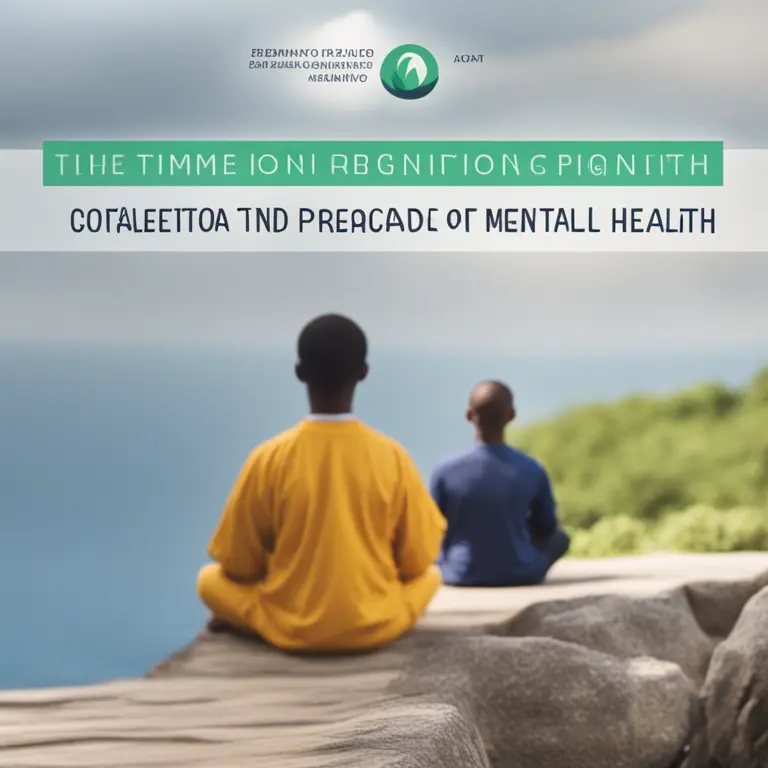
Meditation's Role in Easing Depression
Discover how incorporating meditation into your daily routine can play a significant role in managing and lessening the symptoms of depression.
article by Hina Kurosawa
Meditation: A Gentle Approach to Mental Health
In a world that is increasingly fast-paced and demanding, the significance of mental well-being has never been more recognized. Anxiety and depression are prominent mental health challenges that millions face worldwide. Among various interventions, meditation has emerged as a subtle yet powerful technique to counteract depression. Scientific research continually highlights meditation's effectiveness in altering brain chemistry and emotional regulation, making it an accessible tool for those seeking solace from mental duress.

The Science Behind Meditation and Mood Regulation
The practice of meditation influences the brain's neuroplasticity, indicating that our cerebral structure can change and adapt with experience. Studies have pointed out that consistent meditation positively impacts the prefrontal cortex and amygdala, the areas associated with emotion and stress response. Furthermore, meditation helps in increasing the level of neurotransmitters like serotonin and GABA which are pivotal in mood regulation. Essentially, meditation nurtures a brain environment conducive to emotional stability.

Reducing Stress Hormones Through Meditation
The deep relaxation induced by meditation is known to decrease the production of stress hormones such as cortisol. This biochemical change can lead to diminished inflammation and a reduction in the pervasive feelings of sadness that are synonymous with depression. By lowering stress hormones and enhancing endorphin levels, meditation paves the way for a more optimistic mindset and a decreased likelihood of spiraling into depressive episodes.

Meditation as a Complement to Traditional Treatments
While meditation is not a cure-all or a replacement for conventional therapy or medication, it is increasingly leveraged as a complementary practice. Mental health professionals advocate for meditation as an adjunct to therapy, offering patients an empowering self-help strategy. This inclusion in treatment plans signifies the mainstream acceptance of meditation's therapeutic benefits for those afflicted with depression.

Cultivating Mindfulness and Self-Awareness
Meditation fosters mindfulness, which is the art of remaining present and fully engaged with the current moment without judgment. Individuals who practice mindfulness meditation often find themselves with heightened self-awareness, allowing them to identify negative thought patterns and respond to them with non-attachment and rationality. This ability to detach from distressing thoughts acts as a buffer against the downward spiral often seen in depression.
Personal Journeys: Testimonials Point to Success
Anecdotal evidence from those suffering from depression who have adopted meditation into their lives often speaks volumes. From reports of improved sleep patterns, a more balanced emotional life, to regained hope and vitality, personal stories serve as testament to the enriching effects of meditation on mental health. These narratives complement clinical research and add depth to the understanding of meditation as a viable method for depression management.
Published: 1/14/2024
Modified: 1/15/2024
More predictions
Come back here soon to learn more about yourself and your future


Mindfulness & Meditation: A Guide for High Schoolers
Discover the benefits of mindfulness meditation tailored for the hectic life of high school students, and learn simple strategies to incorporate it into the daily routine.


Healing Through Mindfulness: Meditation & Trauma Recovery
Mindfulness meditation offers a powerful tool for individuals seeking solace and healing from traumatic experiences. Discover how this practice can aid in the journey towards inner peace.


Mindfulness Meditation: A Handbook for High Schoolers
Discover how mindfulness meditation can benefit high school students, enhancing focus, reducing stress, and promoting overall well-being.